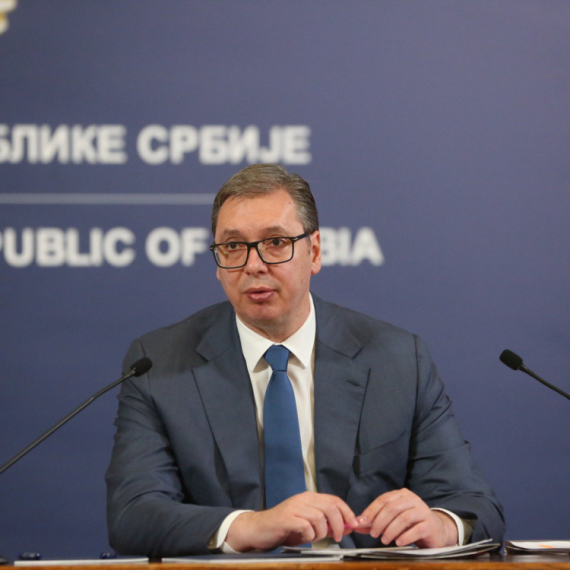PM on Russian loan, "depoliticization"
Prime Minister Mirko Cvetković says his cabinet wishes to see a depoliticization of expert services through the state administration downsizing.
Wednesday, 14.10.2009.
19:55

Prime Minister Mirko Cvetkovic says his cabinet wishes to see a depoliticization of expert services through the state administration downsizing. Cvetkovic, who spoke for B92 TV in Belgrade on Wednesday, also said that Russia has promised a one billion dollar loan to Serbia, and that the money is not being conditioned with an extension of the NIS monopoly, or any other "special concession". PM on Russian loan, "depoliticization" NIS, Serbia's formerly state-owned oil company, is majority owned by Russian giant Gazprom, and has the right to maintain its position in the market through 2010. The prime minister added that the details of the loan are yet to be revealed, but that he is convinced they would be favorable. Some USD 200mn of the expected loan should be used to cover the Serbian budget deficit, while the rest would be set aside for various projects. "I do not think that the monopoly should be extended. We have taken on obligations that we must respect. We are completely in a position not to extend it. I think that an extension of the monopoly would jeopardize our position regarding the EU integration," Cvetkovic said, and added that those include "free market". The government is preparing for an IMF delegation visit on October 26, but despite speculation, the issue of VAT increases is not on the agenda, he said; a similar statement came from the IMF today. The ruling coalition, said the premier, has determined a completely different "principle to fill the budget". "The essence of the reform that we are talking about is to lower the public spending level in the GDP, and to restructure it in a way where a majority would go toward capital spending, and less toward current spending." The so-called rationalization in the state administration – sacking of redundant employees – is another way to make budget savings, but those results will not be discernible in the first half of 2010, said Cvetkovic, and explained that severance pay for some 2,000 civil servants that will be laid off is to blame for that. The prime minister also stressed that "party allegiance will not be a criteria" as employees are being sacked, and that the regularity of the process will be "guaranteed by the government of Serbia". Cvetkovic explained that "some 300 new jobs are available in the state administration", that will be "successively filled as the process of Serbia's EU integration progresses". According to him, this was taken into account when plans were made to have 28,400 people employed in that sector. Cvetkovic also supported the "Hunger Strike Against Hunger" campaign and said that according to the data at his disposal, "the number of poor people in Serbia decreased last year".
PM on Russian loan, "depoliticization"
NIS, Serbia's formerly state-owned oil company, is majority owned by Russian giant Gazprom, and has the right to maintain its position in the market through 2010.The prime minister added that the details of the loan are yet to be revealed, but that he is convinced they would be favorable.
Some USD 200mn of the expected loan should be used to cover the Serbian budget deficit, while the rest would be set aside for various projects.
"I do not think that the monopoly should be extended. We have taken on obligations that we must respect. We are completely in a position not to extend it. I think that an extension of the monopoly would jeopardize our position regarding the EU integration," Cvetković said, and added that those include "free market".
The government is preparing for an IMF delegation visit on October 26, but despite speculation, the issue of VAT increases is not on the agenda, he said; a similar statement came from the IMF today.
The ruling coalition, said the premier, has determined a completely different "principle to fill the budget".
"The essence of the reform that we are talking about is to lower the public spending level in the GDP, and to restructure it in a way where a majority would go toward capital spending, and less toward current spending."
The so-called rationalization in the state administration – sacking of redundant employees – is another way to make budget savings, but those results will not be discernible in the first half of 2010, said Cvetković, and explained that severance pay for some 2,000 civil servants that will be laid off is to blame for that.
The prime minister also stressed that "party allegiance will not be a criteria" as employees are being sacked, and that the regularity of the process will be "guaranteed by the government of Serbia".
Cvetković explained that "some 300 new jobs are available in the state administration", that will be "successively filled as the process of Serbia's EU integration progresses".
According to him, this was taken into account when plans were made to have 28,400 people employed in that sector.
Cvetković also supported the "Hunger Strike Against Hunger" campaign and said that according to the data at his disposal, "the number of poor people in Serbia decreased last year".
























































Komentari 0